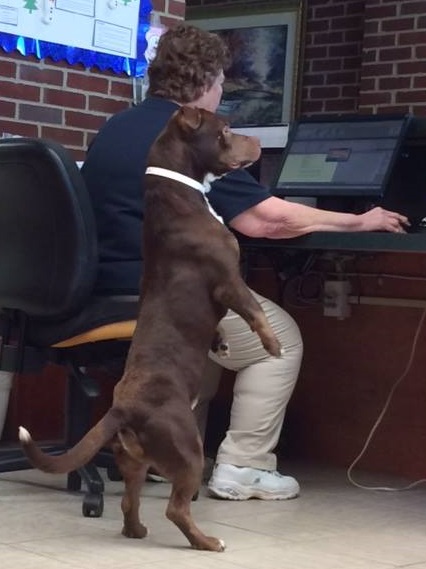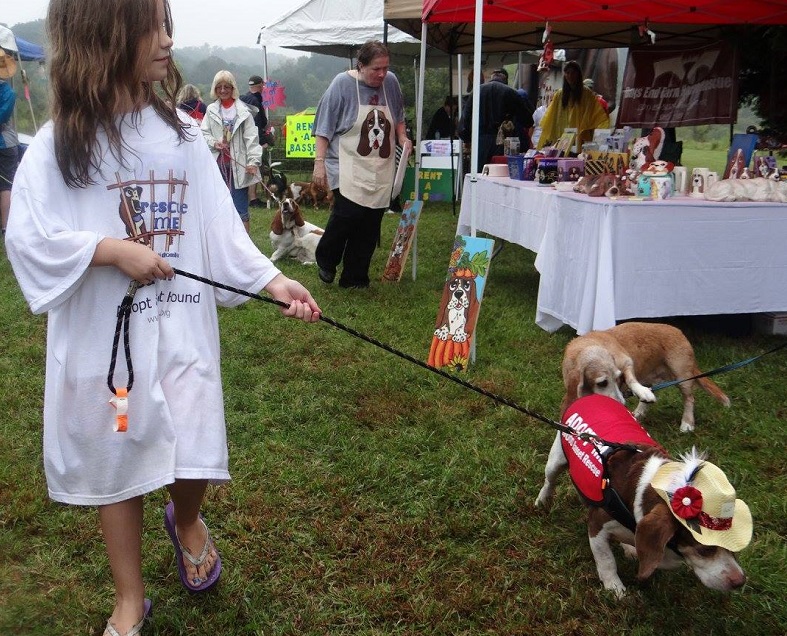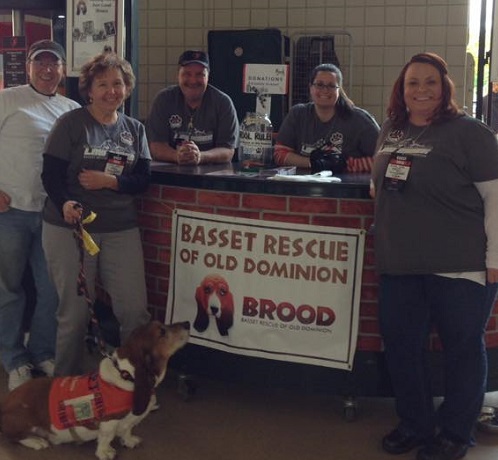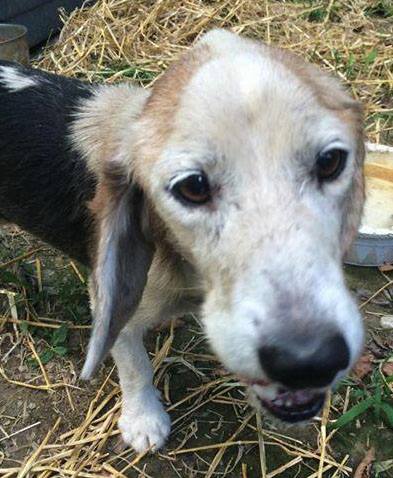Welcome BROOD
Original article by S. Veigel 05/23/2016
Photos provided by Tracy Yee (BROOD).
 In 1996 people were still using pagers, mailing letters and accessing the “World Wide Web” using a dial up connection; if they had a computer. Technical standards had just been developed for what we now call the “Internet” and AT&T had just introduced a prototype for a web enabled phone with a tiny screen. So if you were starting an animal rescue in 1996 you were going to do a lot more mailers, stuffing envelopes, calling people on a desk phone and doing some leg work just to get noticed.
In 1996 people were still using pagers, mailing letters and accessing the “World Wide Web” using a dial up connection; if they had a computer. Technical standards had just been developed for what we now call the “Internet” and AT&T had just introduced a prototype for a web enabled phone with a tiny screen. So if you were starting an animal rescue in 1996 you were going to do a lot more mailers, stuffing envelopes, calling people on a desk phone and doing some leg work just to get noticed.
In November of 1996 a group of people met at the home of Melinda and Dick Brown in an attempt to figure out how to start an organization that could save Basset Hounds. They knew that if they were going to succeed they would need a business model with articles of incorporation, bylaws, a membership model, good accounting practices and a fundraising strategy.
We often forget how different things were in 1996 but the efforts of Melinda Brown, Dick Brown and their friends back then became a successful organization called B.R.O.O.D. (Basset Rescue of Old Dominion). The organization based in Charlottesville Virginia serves Virginia, Maryland, District of Columbia, West Virginia and parts of Delaware and southern Pennsylvania. Their first “Ramble” (an “annual gathering and fundraiser”) was 1998 and as of May 2016 BROOD had rescued 2,876 dogs.
According to Wikipedia “Basset” is a French word meaning “rather low”. There are actually 6 European Basset breeds. Then there are a bevy of Basset mixes. BROOD today takes in both Basset Hounds and Basset mixes. Many of the original BROOD founders have moved on now. Melinda Brown has moved from President to Treasurer and a lady by the name of Marilyn Brazzle (a long time BROOD volunteer) now runs “House of Puddles” https://www.houseofpuddles.org/about.html which is a retirement home for homeless senior Basset Hounds and Basset Hounds with disabilities in Maryland. Chris Williams is now President of BROOD and Lisa Wallace is Vice President.
End of January 2015, sometime after Charlie passed away, my wife, who loves Basset hounds, decided she’d like to help a rescue by fostering dogs. After finding BROOD on the internet she started selling me on the idea. But as I recall my question was, with BROOD’s address in Charlottesville Virginia, 177 miles from our home in Virginia Beach, were we going to be able to help? I had to retire early, my wife was still working and our car was not in the best condition. On the other hand we figured the best way to find out was to start a conversation. So on February 1st 2015 we filled out a foster application.

After a home visit with a very nice couple of BROOD volunteers, Kerri and Tim Hughey, on February 11th the application was accepted and Lisa Wallace contacted us to match us with a dog we would accept. But then she had to ask. We put on our application that we would accept a difficult dog and work with it to help it find a home. Just before our application BROOD got involved with a rescue involving multiple dogs where the owner had passed away. Two of the dogs were a Basset mix bonded pair named Smoke and Ginnie who really weren’t ready to be adopted (but that’s another story). Lisa never pressured, offered us other possible matches, but we could tell she was holding out hope that someone could help them. And we were willing to take them in. But how do we accomplish this?
That February we had a heavy snow and then ice that glazed the snow so thick you could walk on it and never leave a foot print. Even after the roads were somewhat cleared we still had to get them from Charlottesville and there was only a couple day window before we were expecting more snow.
Then the emails started flying and we were cc’d on everything. On February 16, 2015 Jim Helmick, the BROOD transportation coordinator, sent the message, “Please make transport arrangements for Smoke and Ginnie to move from August Kennel in Staunton VA to Steve and Jenny Viegel (Veigel) in Virginia Beach VA. Please add Kerrie and Tim Hughey to the transport list as they can help in the VA Beach area”. This was then followed by a string of emails with Smoke and Ginnie’s pictures along with maps showing which leg of the trip was covered by someone while asking if someone else could help with transport for another section of the route. Then there was a break in the weather and Tim Hughey volunteered to make the trip himself, traveling over 6 hours just to get Smoke and Ginnie into a home.
 The thing that impressed me was the number of volunteers contacted with each email in this effort. Volunteers are just that. They are not employees. They, including Jim Helmick, have other jobs and other things to do. And yet it seemed in that moment they were going to move heaven and earth just to get those dogs out of a kennel.
The thing that impressed me was the number of volunteers contacted with each email in this effort. Volunteers are just that. They are not employees. They, including Jim Helmick, have other jobs and other things to do. And yet it seemed in that moment they were going to move heaven and earth just to get those dogs out of a kennel.
Since that time with Smoke and Ginnie we have fostered/adopted 5 Basset mixes from BROOD. Two of the dogs we knew had health issues when we offered to take them in and they were very sweet dogs who fit right in. But this isn’t about us.
I think a good measure of an organization is when you need them. As foster parents who willingly accepted dogs with health issues BROOD continued to impress me with their availability, their caring spirit and the way they would follow up on dogs in a foster home. From the beginning they were in touch. We were required, as fosters, to fill out a simple form on their website every month to keep them apprised of the situation with the dogs and if there was an issue or a medical need we could text someone. No debate. If the dog needed attention it got it and reimbursement for medical costs was prompt (though we reported some of that on the BROOD form as a donation).
 In 2008 Melinda Brown reported in a fundraiser letter that they spent an average of $790 per dog for medical treatment in 2007. That cost has now climbed to between $900 and $1,100 per dog depending on the dog’s needs like orthopedic surgeries, dental with extractions and heartworm positive dogs. All totaled, in 2015, BROOD spent $188,571 on medical costs. Post medical, and while dogs are waiting for a foster home or adoption, they spend an additional cost of $15 per day per dog for kenneling.
In 2008 Melinda Brown reported in a fundraiser letter that they spent an average of $790 per dog for medical treatment in 2007. That cost has now climbed to between $900 and $1,100 per dog depending on the dog’s needs like orthopedic surgeries, dental with extractions and heartworm positive dogs. All totaled, in 2015, BROOD spent $188,571 on medical costs. Post medical, and while dogs are waiting for a foster home or adoption, they spend an additional cost of $15 per day per dog for kenneling.
In the end I wanted to write about BROOD because I think they typify the best of the rescue community. People who go out of their way, giving their own time and money – not just collected donations – to help animals that are needlessly suffering. Creatures who are feeling, intelligent sentient beings that depend on us because we bred them and taught them to do so.
As of 2014 there were 318.86 Million people in the United States. So if just a quarter of those people would give $5 to a rescue, it may not seem like much, but collectively it would have a huge impact where medical costs are reaching $200,000 a year.
I’ve said it before and I’ll say it again. These people struggling in the animal rescue community to get our attention are among our unsung heroes who represent the best of humanity. It doesn’t take much to help them.
Special thanks to Tracy Yee for select pics of BROOD activities shown in this article
BROOD can be found at https://www.brood-va.org/index.htm .
Their Facebook page is: https://www.facebook.com/BROODVA/ .